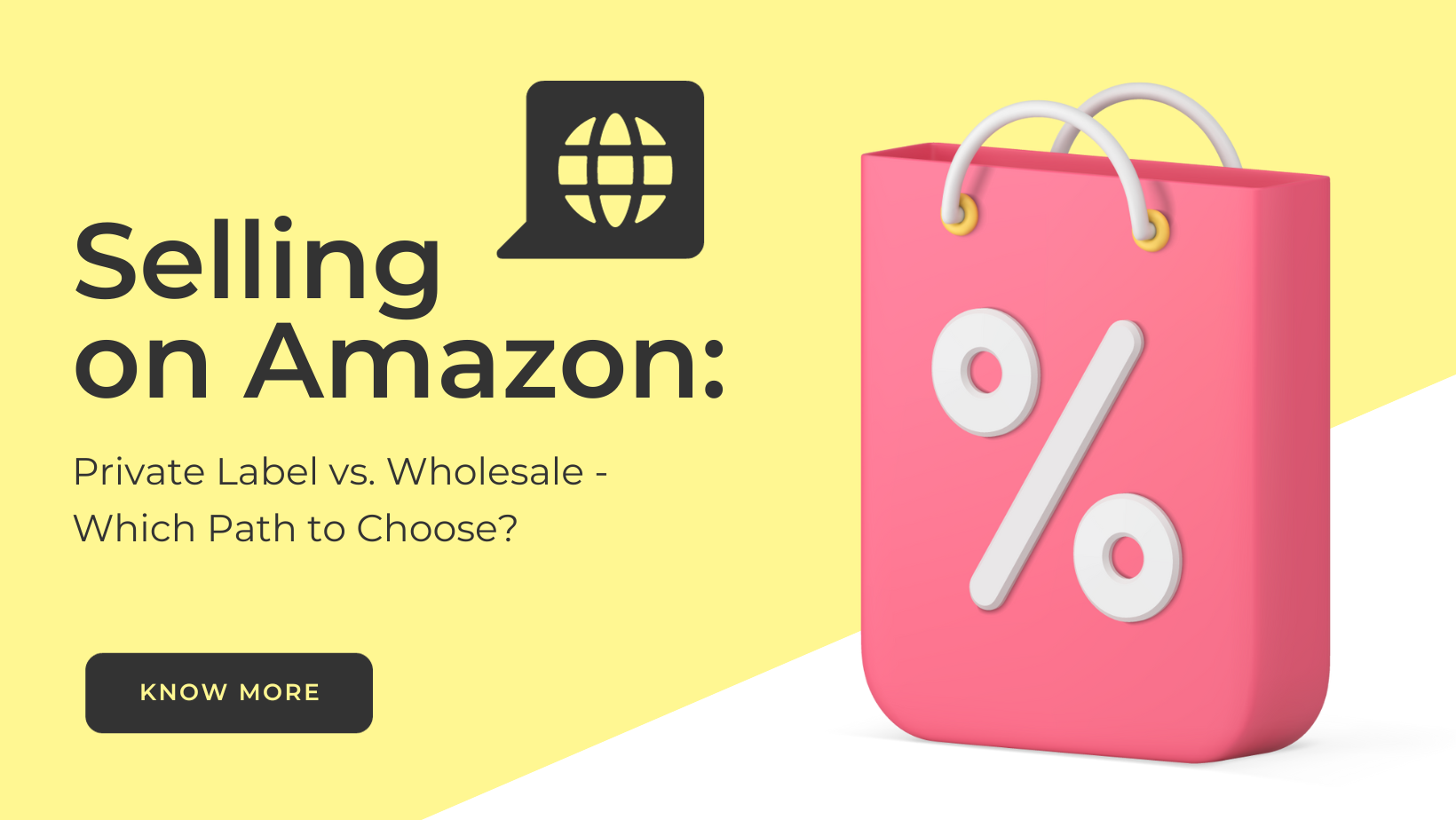Selling on Amazon: Private Label vs. Wholesale - Which Path to Choose?

The Amazon marketplace, a digital colossus in the world of e-commerce, offers a myriad of opportunities for entrepreneurs and established businesses alike. Two popular avenues for selling on Amazon are Private Label and Wholesale. Both have their merits and distinct strategies, but which one is the right choice for you? In this article, we will explore the nuances of Private Label and Wholesale selling on Amazon, helping you make an informed decision on the path to embark upon.
Private Label: Crafting Your Unique Brand
Private Label on Amazon involves sourcing generic or unbranded products, often in bulk, and rebranding them as your own. This method allows for greater control over the product and brand. Here are some key aspects to consider:
- Branding Control: With Private Label, you get to build your brand from the ground up. This means crafting a unique identity, logo, and product design. It's an opportunity to tell your story and connect with your target audience.
- Profit Margins: Private Label products often yield higher profit margins compared to Wholesale, given that you have more control over pricing and brand positioning.
- Competition: While Private Label offers room for differentiation, it also requires careful market research and strategic product selection to stand out in a competitive landscape.
- Investment: Launching a Private Label product may require a more significant upfront investment in branding, design, and marketing.
Wholesale: Tapping into Established Brands
Wholesale is a different ball game. It involves purchasing branded products from manufacturers or distributors in bulk and reselling them on Amazon. Here are the crucial factors to consider:
- Established Brands: Wholesale allows you to work with established brands that are already recognized by consumers. This means less effort required for branding and marketing.
- Lower Risk: Since you're dealing with existing products, there is often less risk involved compared to Private Label.
- Competitive Landscape: Wholesale is still competitive, but you're primarily competing on factors like pricing and fulfillment rather than brand identity.
- Profit Margins: Wholesale margins are generally slimmer than those of Private Label products.
Making the Choice: What's Right for You?
Choosing between Private Label and Wholesale ultimately depends on your business goals, resources, and risk tolerance. Here are some considerations:
- Brand Aspirations: If building a unique brand is your ambition, Private Label provides the canvas for your creativity.
- Risk Management: If you're risk-averse and prefer established brands, Wholesale might be the safer bet.
- Investment: Consider your available budget. Private Label often requires more significant upfront investment.
- Time and Effort: Both paths demand effort, but Private Label may require more time and creativity in terms of branding and differentiation.
- Market Research: In either case, thorough market research and competitor analysis are crucial. Tools like ASINSIGHT can assist in identifying product opportunities and trends.
Conclusion
Selling on Amazon, whether through Private Label or Wholesale, can be a rewarding endeavor. Each path has its unique advantages and challenges. To make the right choice, align your decision with your business objectives, resources, and risk appetite. Regardless of your choice, continuous learning, optimization, and adaptability are key to success in the dynamic world of Amazon selling.